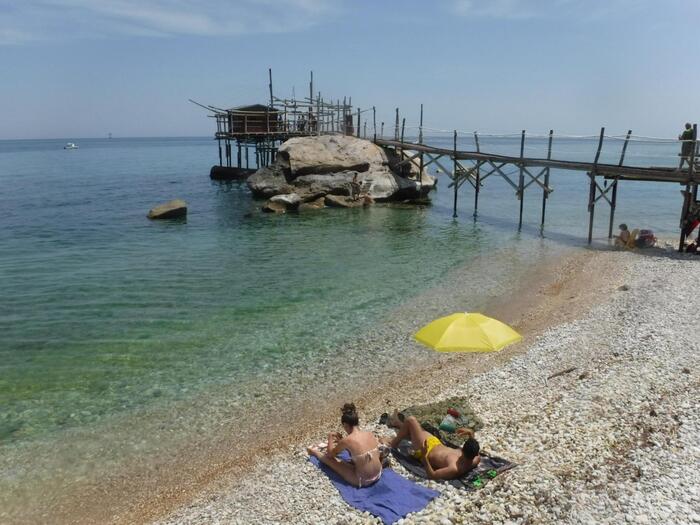Not only heat stroke and sunburn on the beach, but also contact with jellyfish, swimmer’s ear infections and insect bites: holidays also bring risks, which it is important to keep in mind so as not to be caught unprepared.
Among those most often ignored are those for the eyes. “Beyond avoid using contact lenses for bathing, you must use sunglasses, even in children, to protect the eye from UVA rays. These – explains Matteo Piovella, president of the Italian Ophthalmological Society (Soi) – are enhanced by the reflection of water and sand, causing actinic conjunctivitis or photokeratitis, or a corneal burn, which is manifested by pain, sensitization, red eye around the iris. If this happens, it is necessary to intervene early with suitable therapies. In addition, the extreme heat causes the tear film to evaporate, creating irritation, which can be avoided with lubricating drops. “
Hidden in the sea under the sand, the tracine they are bathroom companions in many locations. In the event of a sting, the thorns must be removed and the affected area immersed in hot water because the stinging toxins are thermolabile. Failing that, hot sand can be used, but no ice or ammonia (pee). If you come into contact with a jellyfish, explains the IsSalute website by the Istituto Superiore di Sanità (Iss), you have to “check that no parts are stuck, remove them with a rigid plastic card, scraping the skin. Rinse the part with sea water, do not use fresh water. Then make cold compresses and apply an aluminum chloride gel. “
On the beach, on the rocks or in the grass, walking barefoot is not recommended, both due to the presence of sharp objects and the possibility of encountering ticks, which can be vehicles for infections, such as Lyme disease. They nest in the folds of the skin and are gently pulled out with tweezers.
To go for walks in the countryside, you need to have your legs covered with trousers or long socks, and beat the ground with a stick, to avoid the bite of the viper: in case this happens, immobilize the limb, avoid incisions or sucking and get bring as soon as possible to the hospital.
Among the disturbances of the summer, especially among children and diving enthusiasts, there are the plague caused by bacterial or fungal infections in the auditory system: for those who are sensitive to the problem, silicone plugs are useful for bathing.
The bushes of blackberries and flowers hide wasps and hornets: in case of stings, remove the sting, “apply ice and avoid homemade medications such as vinegar or bicarbonate”, explains IsSalute. Some may be allergic: in case of dizziness or breathing difficulties go to the emergency room.
Closed suitcases, ready to go: whether it’s by car or plane, remember to carry your drugs in your bag and don’t leave them in your suitcase where they could be exposed to too high temperatures that damage them. If sunscreen to go to the beach is a must to avoid burns, it is less obvious to remember to take it on mountain hikes and use it before driving in your car.
